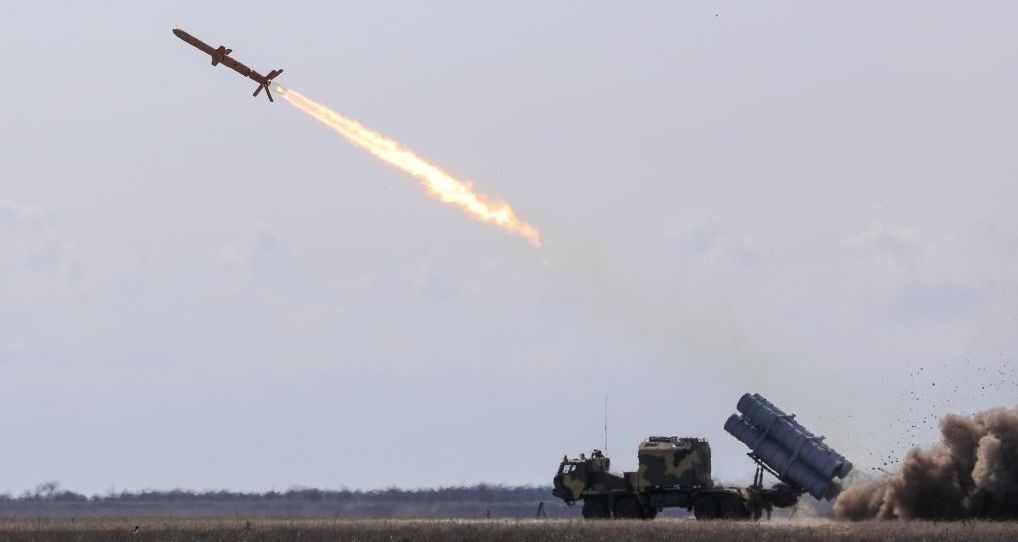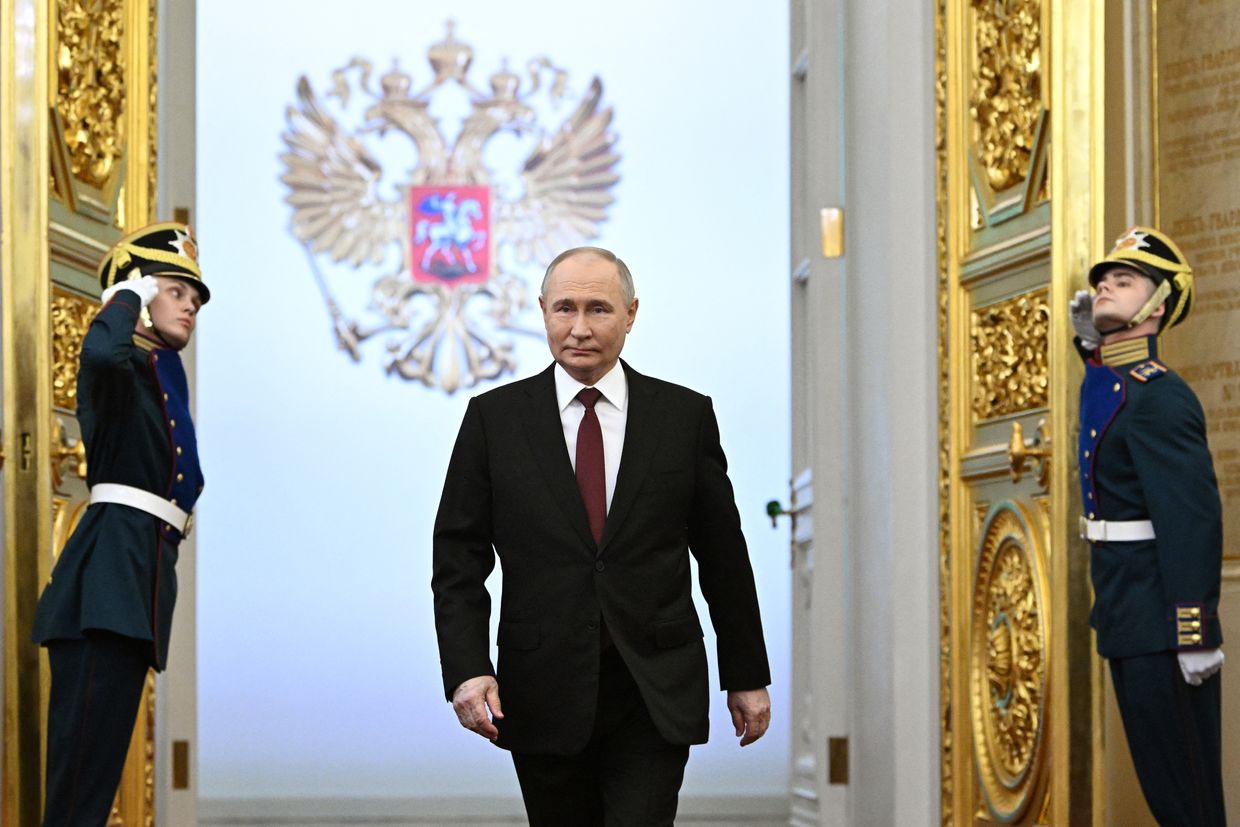Opinion: Biden's foreign policy missteps weakened the West and undermined Harris' path to the presidency
Biden’s presidency may ultimately be remembered for failing to lead with clarity, allowing his ego and missteps on foreign policy to jeopardize both U.S. democracy and Western stability.

U.S. President Joe Biden (L) and U.S. Vice President Kamala Harris greet each other on the first day of thte Democratic National Convention in Chicago, IL, U.S., on Aug. 19, 2024. (Kevin Dietsch/Getty Images)
History will likely judge U.S. President Joe Biden poorly. He set himself a singular mission: to save democracy. But the risk is that his own ego may have jeopardized that very cause — not only in the U.S. but across the West.
Given his age, Biden was expected to be a one-term president. His task was to defeat then-U.S. President Donald Trump in 2020, then help cultivate a new bench of young leaders who could beat Trump in 2024. But the trappings of power and his own ego seemed to get the better of him before old age took hold, and by then, it was too late.
U.S. Vice President Kamala Harris struggled to shine during the 2020 primaries, and her 2024 presidential campaign was always an uphill battle. Her failure to present a clear agenda, beyond opposing Trump, ultimately cost her. She often appeared more focused on avoiding mistakes than on setting a strong vision for the country. Her economic platform was vague at best — at least with Trump, his goals on tariffs, immigration, deregulation, and energy were clear.
But Biden’s foreign policy also weighed heavily on Harris’ prospects. In fact, Biden’s foreign policy decisions have generally been disastrous.
First, the chaotic withdrawal from Afghanistan undermined U.S. credibility, echoing past failures in Iraq and elsewhere.
Second, Biden's team underestimated the threat from Russian President Vladimir Putin and Russia, choosing to prioritize China. This almost signaled a green light to Putin, who saw weakness in the West and seized the opportunity to invade Ukraine. Biden’s fundamental misstep was in assessing China as the primary threat; while it may be a long-term concern, Russia presented the more immediate existential danger to Western liberal democracy.

Putin aims to destabilize and corrupt Western systems, while Xi Jinping seems content with the global status quo, which he believes will ultimately lead to Chinese dominance through globalization. The West had time to address China, but it might not survive if Putin went unchecked. Biden's team got the order of priorities wrong.
Third, Ukraine could have been a significant win for Biden. At various points during the war, Ukraine appeared poised for victory but needed sufficient funding and weapons from the West to secure it. However, Biden’s team consistently showed caution, while Putin’s so-called red lines proved more flexible than feared. Opportunities were missed, which only revitalized Putin’s campaign and cost countless Ukrainian lives, leading to a protracted war of attrition.
Instead of decisive leadership, U.S. policy often amounted to the "highest common denominator" approach — attempting to unite allies, but ultimately failing to provide Ukraine with enough support to secure a win. The country was given just enough aid to survive but not enough to prevail. There was a lack of cohesive, strategic thinking on Ukraine.
Fourth, the Middle East. U.S. National Security Advisor Chief Jake Sullivan’s ironic comments just before Oct. 7 — that the region was the calmest it had been in years — reflected the administration’s lack of foresight. The focus on the Abraham Accords was misguided and showed little understanding of the region. The administration’s failure to hold Israel accountable for its retaliatory actions following Oct. 7 also hurt Harris with Muslim voters. The U.S. seemed leaderless in the region, which may have resonated with voters back home.
In reality, on much of foreign policy, the U.S. has appeared leaderless — and so has the West.
Looking forward, there’s a nervousness about the incoming Trump administration. With Trump pulling support from Ukraine, Putin would likely regain the upper hand. In the Middle East, Trump’s policies would likely favor Israel even more strongly, heightening tensions with Iran. This could bring significant risks and challenges for Europe, with a U.S.-Israeli conflict with Iran increasingly likely.
And this isn’t even considering the potential for further deterioration in U.S.-China relations if Trump returns to aggressive tariffs. It’s fair to wonder if any of this could be worse than the current trajectory under Biden — but many voters seem to have concluded it might not be, at least where foreign policy is concerned.
Editor’s Note: The opinions expressed in the op-ed section are those of the authors and do not necessarily reflect the views of the Kyiv Independent.












